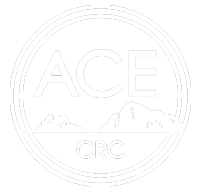Antarctic Medal
The 2012 Antarctic Medal has been awarded to four people for outstanding service to the Australian Antarctic program.
The Antarctic medals were awarded to oceanographer Dr Steve Rintoul and medical practitioner Dr James Doube, with a posthumous award for meteorologist Dr Neil Adams. A clasp to the Antarctic Medal was awarded to Dr Graham Robertson.
The Governor General, Her Excellency, Ms Quentin Bryce AC announced the awards as part of Midwinter celebrations today.
Environment Minister Tony Burke congratulated the recipients and thanked them for their outstanding service.
“The recipients have each made a unique and significant contribution to support Australia’s Antarctic program,” Mr Burke said.
“It’s inspirational to see Mawson’s legacy continue today, more than a century on, as Australians dedicate their work to the science of Antarctica and the Southern Ocean and supporting Australia’s presence on the frozen continent.”
As a recipient of the award for a second time Dr Graham Robertson received a clasp to the Antarctic Medal in recognition of his research on ways to reduce seabird bycatch in long line fisheries, including developing an underwater bait setting machine.
Dr Robertson was first presented the honour in 1989 for his contribution to the scientific knowledge of Emperor penguins.
“Dr Robertson has spent more than two decades working in Antarctica and the Southern Ocean. He has spent long periods in remote field locations and on fishing vessels, often under arduous conditions,” Mr Burke said.
“He has the rare ability to work collaboratively with a wide variety of people from different cultures and has successfully bridged the gap between, science, conservation and industry to help reduce the number of seabirds dying on our oceans.”
Dr Robertson has been a very influential force in domestic and international scientific forums, including the Convention on the Conservation of Antarctic Marine Living Resources (CCAMLR).
Oceanographer, Dr Steve Rintoul, received the award for his leadership and outstanding contribution to science and Australia’s Antarctic program.
He has undertaken 14 marine science voyages, 11 as Chief Scientist and has spent more than 13 months in the Southern Ocean.
“Dr Rintoul’s work has improved the world’s understanding of the workings of the Southern Ocean and its significance in the global climate system,” he said.
“He’s most recently proved that deep Antarctic water is becoming fresher and warmer at a much higher rate than previously thought – an observation of crucial importance for future climate predictions.”
Dr Rintoul is a part of the Scientific Committee on Antarctic Research and much of his work feeds into the Intergovernmental Panel on Climate Change reports.
Medical practitioner Dr James Doube received the award for outstanding service to Antarctic expeditions to Macquarie Island.
Dr Doube was the Station Doctor, Search and Rescue Leader, Field Training Officer and Watercraft Operator over a period of more than 3 years.
“Dr Doube has an exceptional level of skill across a variety disciplines including generalist medicine, expedition medicine, public health and occupational medicine.
“On top of this he has honed skills in biology and science, communications, media, search and rescue and field support and enabled the success of the various expeditions and programs. Dr Doube is an inspiration to other doctors practicing remote medicine,” Mr Burke said.
Meteorologist and scientist Dr Neil Adams has been awarded a posthumous Antarctic Medal.
Dr Adams was the Manager of the Bureau’s Antarctic Meteorological Section and spent three decades supporting Australia’s Antarctic program, including three summers and one winter in Antarctica.
Dr Adams developed forecasting infrastructure which underpins the Bureau’s Antarctic forecasting service including the polar Numerical Weather Prediction (NWP) suite; the observational data and NWP model output viewing system; the Australian Antarctic Division aviation-based Automatic Weather Station network; and the Bureau’s satellite facilities in Antarctica.
“Dr Adam’s exceptional abilities as a forecaster contributed immensely to the achievement of scientific programs across many years.
“He was crucial to the safe work of Australian’s in Antarctica, with his forecasts supporting the Australian Antarctic Division's station, traverse, shipping, flights and deep field activities.”
Dr Adams passed away in March this year.
The Australian Antarctic Medal was established in 1987 and is an award in the Meritorious Service Awards category of the Australian Honours System.
It replaced the (British) Imperial Polar Medal and its variations which date back to 1857 for service in the Arctic and Antarctic regions.






















